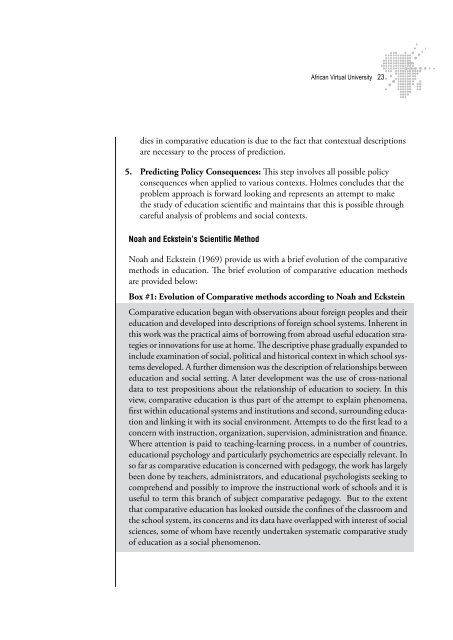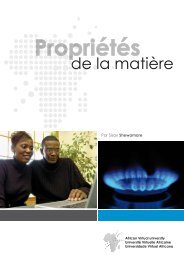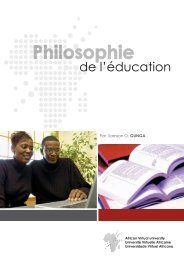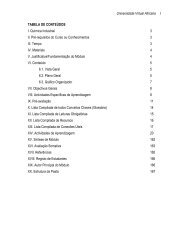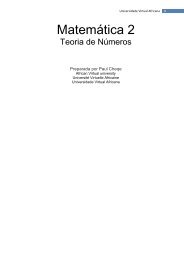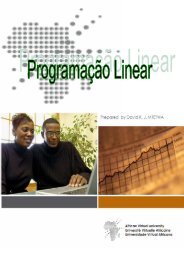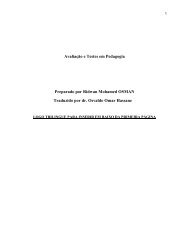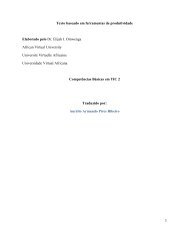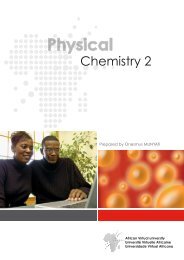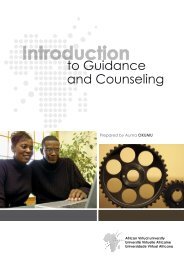Comparative Education.pdf - OER@AVU - African Virtual University
Comparative Education.pdf - OER@AVU - African Virtual University
Comparative Education.pdf - OER@AVU - African Virtual University
Create successful ePaper yourself
Turn your PDF publications into a flip-book with our unique Google optimized e-Paper software.
<strong>African</strong> <strong>Virtual</strong> <strong>University</strong><br />
dies in comparative education is due to the fact that contextual descriptions<br />
are necessary to the process of prediction.<br />
5. Predicting Policy Consequences: This step involves all possible policy<br />
consequences when applied to various contexts. Holmes concludes that the<br />
problem approach is forward looking and represents an attempt to make<br />
the study of education scientific and maintains that this is possible through<br />
careful analysis of problems and social contexts.<br />
Noah and Eckstein’s Scientific Method<br />
Noah and Eckstein (1969) provide us with a brief evolution of the comparative<br />
methods in education. The brief evolution of comparative education methods<br />
are provided below:<br />
Box #1: Evolution of <strong>Comparative</strong> methods according to Noah and Eckstein<br />
<strong>Comparative</strong> education began with observations about foreign peoples and their<br />
education and developed into descriptions of foreign school systems. Inherent in<br />
this work was the practical aims of borrowing from abroad useful education strategies<br />
or innovations for use at home. The descriptive phase gradually expanded to<br />
include examination of social, political and historical context in which school systems<br />
developed. A further dimension was the description of relationships between<br />
education and social setting. A later development was the use of cross-national<br />
data to test propositions about the relationship of education to society. In this<br />
view, comparative education is thus part of the attempt to explain phenomena,<br />
first within educational systems and institutions and second, surrounding education<br />
and linking it with its social environment. Attempts to do the first lead to a<br />
concern with instruction, organization, supervision, administration and finance.<br />
Where attention is paid to teaching-learning process, in a number of countries,<br />
educational psychology and particularly psychometrics are especially relevant. In<br />
so far as comparative education is concerned with pedagogy, the work has largely<br />
been done by teachers, administrators, and educational psychologists seeking to<br />
comprehend and possibly to improve the instructional work of schools and it is<br />
useful to term this branch of subject comparative pedagogy. But to the extent<br />
that comparative education has looked outside the confines of the classroom and<br />
the school system, its concerns and its data have overlapped with interest of social<br />
sciences, some of whom have recently undertaken systematic comparative study<br />
of education as a social phenomenon.


